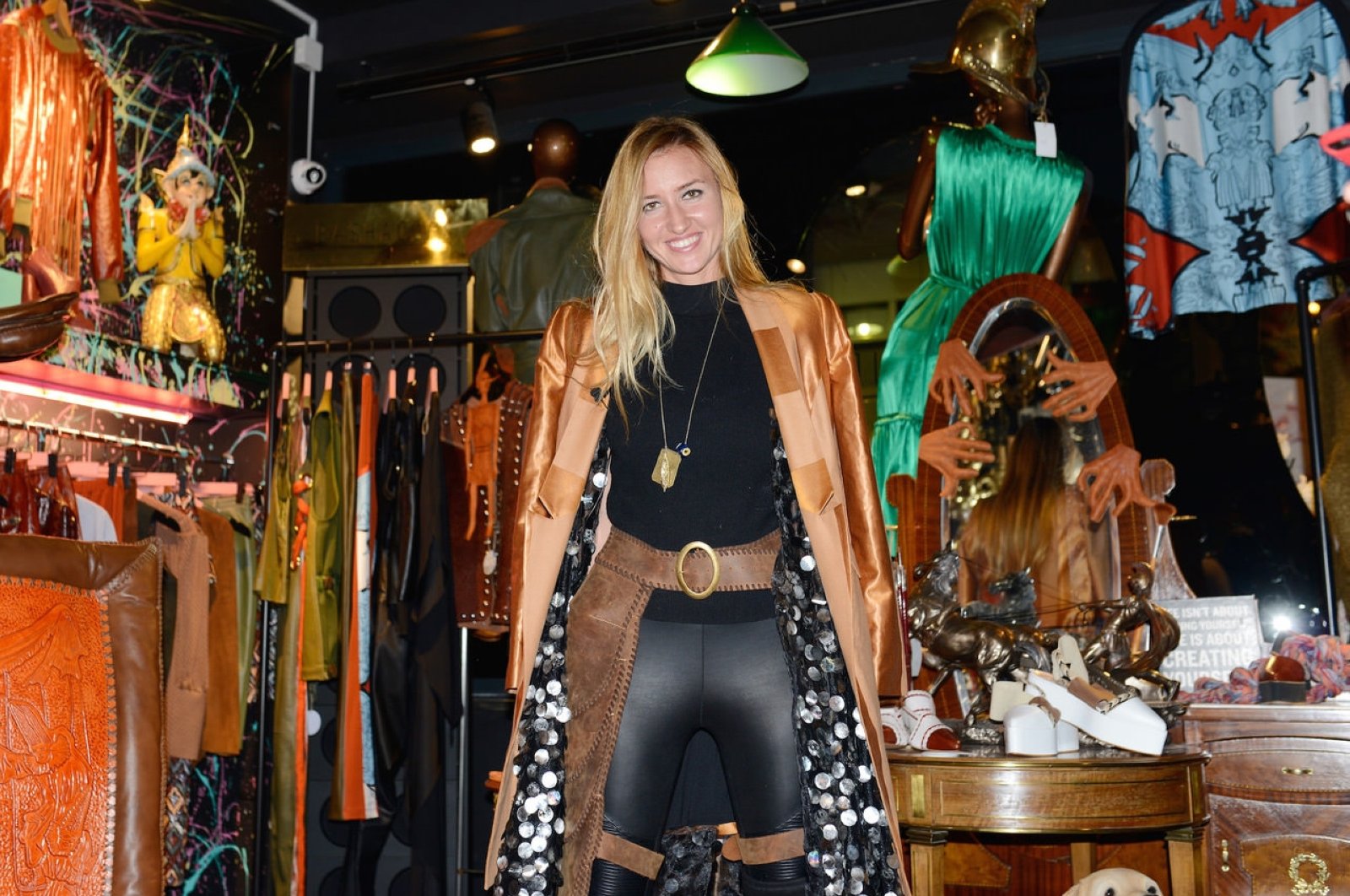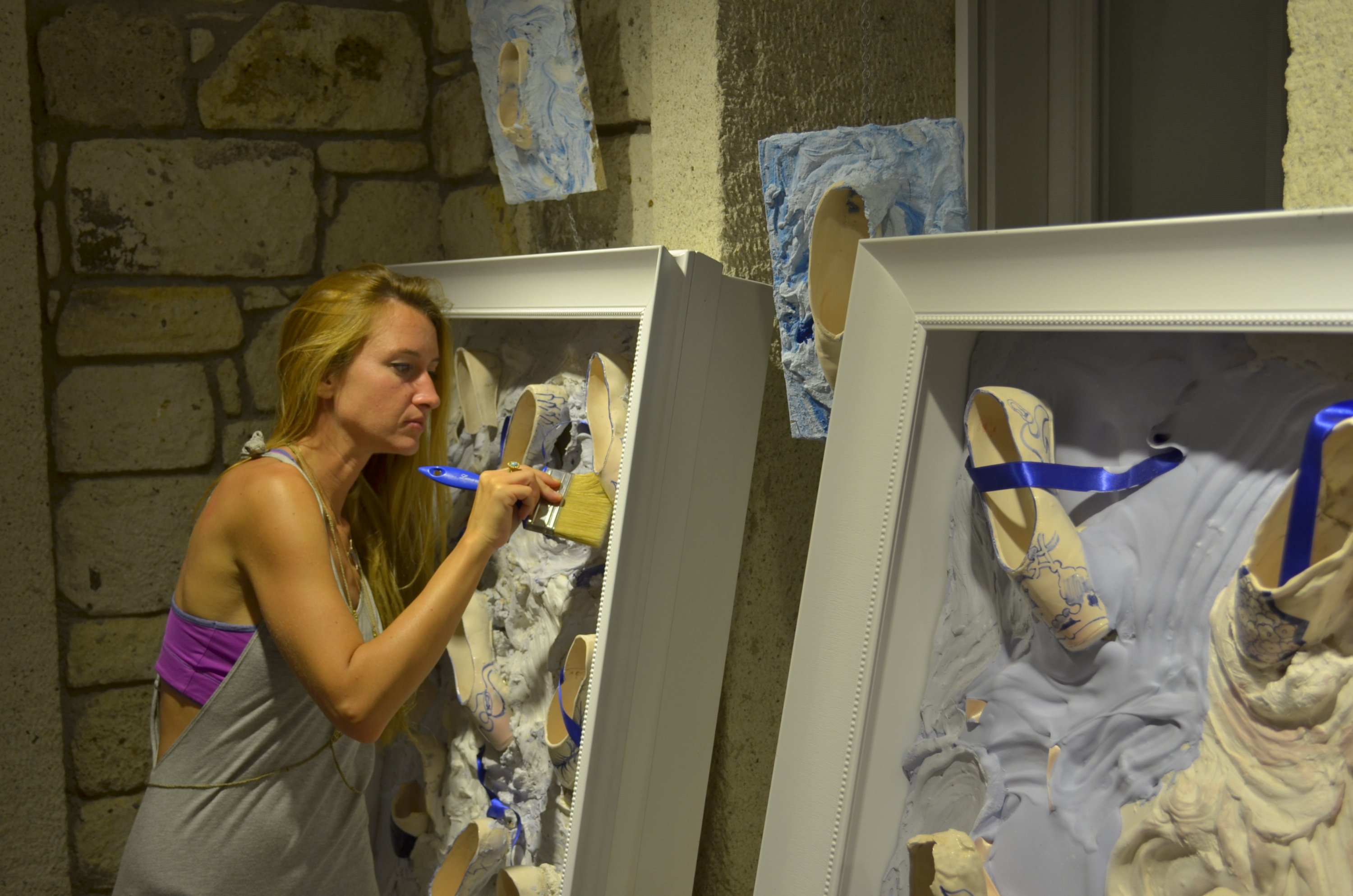
Başak Cankeş, a young and visionary figure, embarks on captivating journeys to unique locales like Latin America or Marrakech, chasing textures, weaves, fabrics and hues, unveiling fashion as an enchanting form of wearable art with each of her creations
Başak Cankeş is a young designer and artist from Izmir, born in 1988. Since presenting her first collection titled "An" ("Moment") under the brand name Bashaques in 2015, she has brought a fresh perspective to the Turkish fashion world. From the beginning, she has introduced a multidimensional approach to fashion with her artistic collections, wearable art pieces and presentations that intertwine art and fashion. Her project, "The Truth," exhibited at Zorlu Performing Arts Center (Zorlu PSM) in 2019, garnered much attention as she delved into the surreal world created by fashion and questioned its perceptions. Cankeş is a designer who emphasizes that art is the foundation of fashion.
With "The Truth," Cankeş showcased her collection through an interdisciplinary show, successfully defying the predetermined norms imposed by fashion regarding body, gender, race and age at a time when "body positivity" was not yet popular in the fashion industry. Reflecting on fashion weeks and standardized fashion show formats, she said: "In 2015, I did two shows that lasted for 15 minutes. Looking back, I evaluate it as an experience limiting my creative excitement. Of course, it was beautiful. However, a collection on which I had worked tirelessly for months was showcased by fast-walking models in just 15 minutes. And it was consumed in six months. All my creative energy was put into a jar and tightly sealed."

Cankeş recently undertook an ambitious project where she compared the captivating textures of her native geography with similar ones from different parts of the world.
Years ago, Cankeş emerged as a designer who opposed the fast fashion movement and distanced herself from the consumption-driven side of fashion, embracing wearable art. Under the Bashaques brand, she created a unique collection by synthesizing South America and Anatolia's colors, patterns and weaving techniques. Reflecting on her project, the designer stated: "My greatest motivation is my mother, who has been a guide of Anatolia for 40 years ... And the women I observed making carpets and kilims in the places we visited during my childhood ... When I wanted to visit them now, I realized that their numbers had decreased so much. This led me to research what and why we have lost. I went to South America to search for and find what we lost first in Colombia and then in Peru."
Cankeş, who lived a completely different life during her 42-day journey in Latin America, visiting 20 villages, later embarked on a similar journey in Anatolia. And all of these experiences were transformed into a 50-minute documentary that compares the similarities in texture, technique, color and weaving between these two vastly different geographies. The designs she prepared with the inspiration and experience from there evolved into a collection, most of which are unique pieces. Emphasizing that fashion is not just about consumption but a realm where greater superiority and awareness can be created, Cankeş continues, "While studying fine arts at university, I wrote down 'wearable art' in a notebook for my graduation project. Although I established the Bashaques brand five years after graduating, I have never deviated from this concept and am still following its path. The idea of having only one piece and selling very special items with a certificate is something I have been practicing since 2015. I don't find it exciting or beneficial to produce and make hundreds of textile products. My designs cannot be produced in 100 pieces; each fabric is unique and in limited quantity."
After this project, Cankeş embarked on a completely different path. "Following our documentary work in Colombia, we continued to explore the world of documentaries. And then, I received my first offer as an art director. I was thrilled about this project, where I would tell the story of the mythological hero Medusa. I wrote the script, directed it, and prepared the costumes for the artists. We focused mainly on this project throughout the winter. The project will meet the audience in the future, but this winter was quite intense for me due to this project," Cankeş continued.
In addition to this project, Cankeş has simultaneously pursued a journey of bringing together fabric, fashion, and culture in different parts of the world. She traveled to Marrakech to examine the knots of Berber rugs, and based on this journey, she prepared kilim jackets as a capsule collection, currently available for sale in her store in Alaçatı. Meanwhile, her designs have started selling consecutively in Ibiza, a popular tourist destination worldwide. "I went to Ibiza twice this year. I took my designs with me and met with local stores from scratch. Two stores embraced my designs and their stories and started selling the designs. I am going back there soon. It's very exciting to have an audience that understands the spirit of my clothes," she said.
Describing that being a fashion designer has limited her, Cankeş now defines herself as a traveling designer. "Our brand headquarters is in Alaçatı ... Ibiza has become a location where our designs are understood. We have a brand history of 10 years. Currently, our customers request pieces from previous collections. We communicate with them directly and fulfill their requests. The collection pieces have constantly been renewed, keeping them fresh, current and unique with a different upcycling approach. We are far from a mass production mindset. And now, I see myself as a sort of hunter of beautifully produced fabrics. I am an intermediary for reusing these fabrics," says Cankeş, offering one of the most successful examples of reinterpreting her creative journey and storytelling through art.
